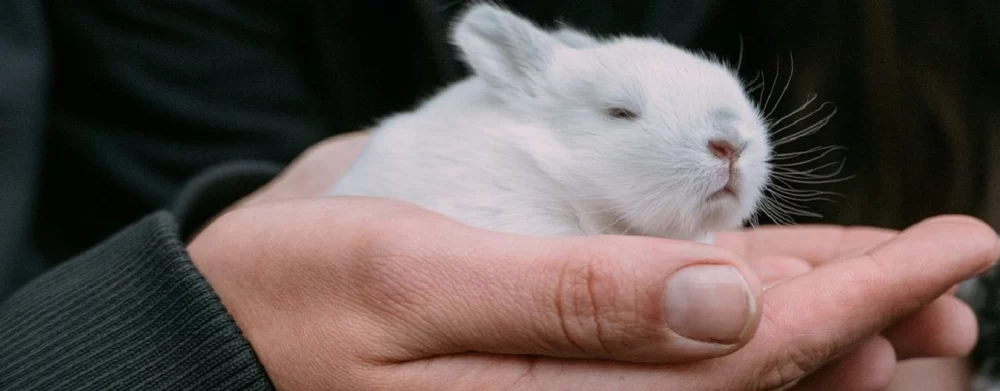- Understanding Kidney Disease in Rabbits
- Common Signs of Kidney Disease in Rabbits
- Causes and Risk Factors
- Diagnosis and Treatment Options
- Case Example and Prevention Tips
1. Understanding Kidney Disease in Rabbits
Kidney disease in rabbits is a serious but often overlooked health issue. The kidneys play a critical role in filtering toxins from the bloodstream, regulating fluids, and maintaining overall metabolic balance. When these organs fail to function properly, the rabbit’s health can rapidly decline. Unfortunately, because rabbits are prey animals, they tend to hide illness until symptoms become severe, making early recognition of signs of kidney disease in rabbits essential for timely intervention.
The disease may develop gradually or suddenly, but in either case, it requires careful attention and appropriate veterinary care. Understanding how kidney problems manifest in rabbits is crucial for any owner who wants to provide the best care possible.
1.1 Why Kidney Health is Vital for Rabbits
Unlike some other pets, rabbits are especially sensitive to changes in hydration and electrolyte balance. Their kidneys must work efficiently to prevent toxin buildup. Damage to kidney tissue can impair this function, causing a dangerous cycle of worsening health issues. Early identification and treatment can significantly improve the outlook.
2. Common Signs of Kidney Disease in Rabbits
Recognizing the signs of kidney disease in rabbits can be challenging but is critical for early intervention. These signs often appear subtly and may be mistaken for less serious conditions. Key symptoms to watch for include:
2.1 Changes in Urination Patterns
One of the earliest signs involves changes in how often or how much your rabbit urinates. You may notice more frequent urination, difficulty urinating, or even blood in the urine. These changes indicate that the kidneys are struggling to process waste effectively.
2.2 Reduced Appetite and Weight Loss
Rabbits with kidney disease often eat less due to nausea or general malaise. This leads to noticeable weight loss and weakened condition, which requires prompt attention to prevent further deterioration.
2.3 Lethargy and Behavioral Changes
Another common indicator is decreased activity levels. Your rabbit may seem unusually tired, less interested in play, or hide more frequently. These subtle behavioral changes can reflect underlying discomfort or toxicity caused by impaired kidney function.
2.4 Poor Coat Condition and Dehydration
Kidney disease can cause dehydration and poor nutrient absorption, leading to a dull, rough coat. You might also observe dry skin or sunken eyes, which are red flags for underlying health problems.
3. Causes and Risk Factors
Understanding what leads to kidney disease helps owners take preventive measures. Several factors contribute to kidney problems in rabbits:
3.1 Aging
As rabbits age, their kidney function can decline naturally. Older rabbits are therefore at higher risk and require more frequent health monitoring.
3.2 Dietary Issues
Improper diet, especially one high in calcium or low in hydration, can contribute to kidney strain and stone formation. Ensuring balanced nutrition tailored to rabbits is essential.
3.3 Infections and Toxic Exposure
Certain infections and exposure to toxins—like some plants, chemicals, or medications—can damage the kidneys. Prompt veterinary diagnosis is critical if poisoning or infection is suspected.
4. Diagnosis and Treatment Options
Early diagnosis is key to managing kidney disease effectively. Veterinarians use a combination of physical examination, blood tests, and urine analysis to assess kidney function. Imaging like ultrasound may also be employed to check for stones or structural issues.
4.1 Medical Management
Treatment typically involves supportive care such as fluid therapy, dietary adjustments, and medications to manage symptoms and slow progression. It is important that owners follow the veterinarian’s advice closely, as kidney disease requires ongoing management.
4.2 Importance of Regular Check-Ups
Regular health checks allow early detection of kidney disease before severe symptoms develop. Owners should prioritize routine veterinary visits, especially for aging rabbits or those with known risk factors.
5. Case Example and Prevention Tips
At Hidden Brook Veterinary, we recently cared for a rabbit named Milo who began showing subtle signs of lethargy and weight loss. Initial tests revealed early-stage kidney disease. Through a customized care plan involving dietary changes and gentle fluid therapy, Milo’s quality of life improved dramatically. This case underscores the importance of recognizing the signs of kidney disease in rabbits early and seeking professional guidance.
5.1 Practical Prevention Strategies
To help prevent kidney disease in rabbits, owners should:
- Maintain a balanced diet rich in fiber and low in excess calcium.
- Provide constant access to fresh water to prevent dehydration.
- Schedule regular veterinary check-ups, especially for senior rabbits.
- Avoid exposure to toxins and monitor medication use carefully.
For those looking for the best products or professional advice on rabbit health, Hidden Brook Veterinary offers expert guidance and quality resources to support your pet’s kidney health and overall well-being.












